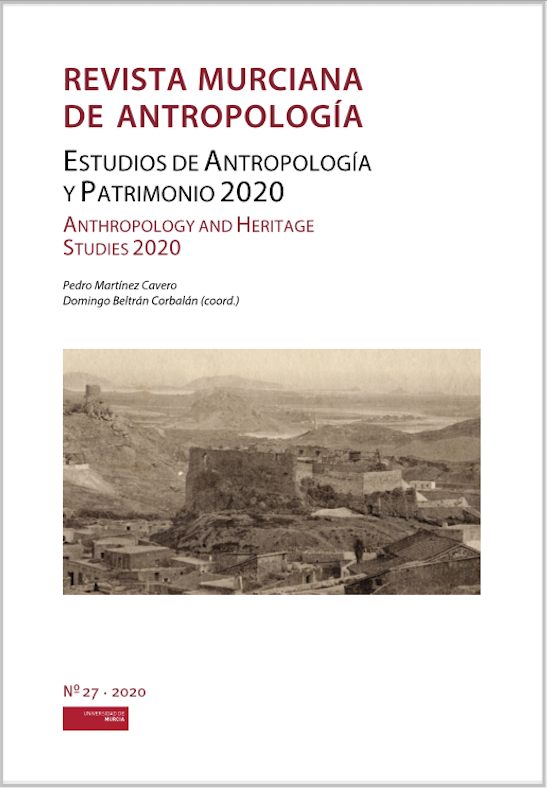Artisanal fishing, cultural heritage and social education.
The Murcian fisherman as cultural custodian
Abstract
In recent years, European fishing communities have undergone major structural changes resulting from the different reforms of the Common Fisheries Policy (CFP). The instruments implemented have led to a transformation in this sector, affecting small fishing stocks. In this context, we present an anthropological study as a tool of great value to understand the responses of individuals and communities to new challenges. This work, based on primary and secondary information collected in the last decade in the Region of Murcia (Spain), explores some of these responses. The testimonies of the different informants show the weakening of this profession as a result of the political tools implemented. Decreasing number of boats and self-employed workers, coupled with a lack of generational replacement puts at risk traditional knowledge of artisanal fishing. To reflect on the present and future of these ancestral practices, a series of experiences are presented where the fisherman is revealed as an intermediator or transmitting agent of knowledge, linking the heritage legacy to different sectors of contemporary society.
Downloads
-
Abstract2452
-
pdf (Español (España))1136
References
Ballesteros Pelegrín, G. A.; Belmonte Serrano, F. & Sánchez-Sánchez, M. A. (2018). Las encañizadas del Mar Menor: ejemplo de recuperación de un modelo de pesca sostenible y respetuoso con la biodiversidad marina y el paisaje. Cuadernos Geográficos 57 (3), 222-242.
Comisión de las Comunidades Europeas. (2009). Libro Verde. Reforma de la Política Pesquera Común. Bruselas.
Einarsson, N. (2012). De los derechos de pesca a los derivados financieros. Las Cuotas Individuales Transferibles y el colapso económico de Islandia en 2008. En T. Højrup y K. Schriewer (eds.), La Pesca Europea ante un Cambio Irreversible, 175-227. Murcia: Universidad de Murcia, Editum.
Ellen, R. (1998). Comments to P. Sillitoe: The Development of Indigenous Knowledge. A New Applied Anthropology. Current Anthropology , 39.
García Allut, A. (2003). La pesca artesanal, el cambio y la patrimonialización del conocimiento. Revista PH, 44 (especial).
García Simó, I.; Muñoz López, S.A. & Pérez Pérez, J.J. (2004). La pesca del Mar Menor: un estudio de casos: las encañizadas. En L. Álvarez Munárriz (coord.) Culturas del agua: curso de la Universidad Internacional del Mar. Murcia: Universidad de Murcia.
Hardin, G. (1968). The Tragedy of the Commons. Science, 162, 1243-1248.
Højrup, T. (2011). The Needs for Common Goods for Coastal Communities. Fjerritslev, Dinamarca: Centre for Coastal Culture and Boatbuilding.
Høst, J. (2012). Tres clases de peces. Compra, venta y arrendamiento de derechos de pesca en la industria pesquera danesa. En T. Højrup & K. Schriewer (eds.), La Pesca Europea ante un Cambio Irreversible, 257-303. Murcia: Universidad de Murcia, Editum.
López Martínez, G. (2015). Culturas laborales: el autónomo y otros modos de vida en la pesca murciana. Tesis Doctoral. Murcia: Universidad de Murcia.
López Martínez, G. (2018). Trabajo autónomo en la pesca profesional de la Región de Murcia. En S. Cayuela, K. Schriewer y D. Martínez (eds.), Dialécticas de la alteridad. Antropología y marxismo a comienzos del siglo XXI, 131-152. Barcelona: Ediciones Bellaterra.
Marcus, G. & Fischer, M. (1986). La antropología como crítica cultural. Un momento experimental en las ciencias humanas. Barcelona: Amorrortu Editores.
Ostrom, E. (1990). Governing the commons: The evolution of institutions for collective action. Cambridge: Cambridge University Press.
Copyright (c) 2020 Murcian Journal of Anthropology

This work is licensed under a Creative Commons Attribution-ShareAlike 4.0 International License.
Las obras que se publican en esta revista están sujetas a los siguientes términos:
1. El Servicio de Publicaciones de la Universidad de Murcia (la editorial) conserva los derechos patrimoniales (copyright) de las obras publicadas, y favorece y permite la reutilización de las mismas bajo la licencia de uso indicada en el punto 2.
2. Las obras se publican en la edición electrónica de la revista bajo una licencia Creative Commons Reconocimiento-CompartirIgual 4.0 Internacional. Se pueden copiar, usar, difundir, transmitir y exponer públicamente, siempre que: i) se cite la autoría y la fuente original de su publicación (revista, editorial y URL de la obra); ii) se mencione la existencia y especificaciones de esta licencia de uso.
3. Condiciones de auto-archivo. Se permite y se anima a los autores a difundir electrónicamente las versiones pre-print (versión antes de ser evaluada) y/o post-print (versión evaluada y aceptada para su publicación) de sus obras antes de su publicación, ya que favorece su circulación y difusión más temprana y con ello un posible aumento en su citación y alcance entre la comunidad académica. Color RoMEO: verde.













